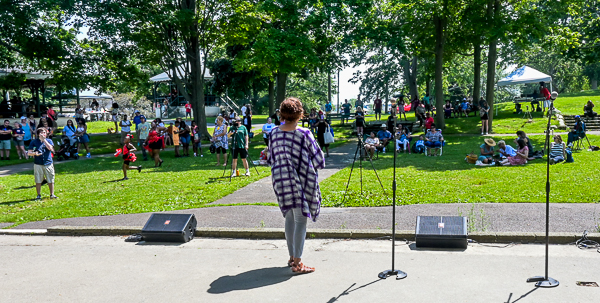We Collaborate
The Office of the Attorney General has asserted that it is unlawful for a housing provider not to protect tenants from harassment. I wrote to seek a meeting with the Attorney General or the Policy & Government Affairs Division to discuss the issues around bullying, mobbing, and hostile environment harassment. I asked to include tenants and the legislative sponsors of H3868—a bill to create an office of the tenant advocate that would protect the rights of tenants when landlords fail to prevent hostile environment harassment. The bill is based on a rule on hostile environment harassment that codifies aspects of the Fair Housing Law making the housing provider responsible for protecting the rights of tenants to a peaceful home. “Hostile environment harassment” is unwelcome conduct creating a situation that makes it difficult or impossible for victims to have the peaceful enjoyment of their residency.
On Monday, November 20, 2023, Lisa Sears, a Senior Policy Advisor in the Policy & Government Affairs Division of the Attorney General of Massachusetts, hosted an online meeting attended by Senator Joan Lovely and Representative Sally Kerans as well as representatives of the Stop Bullying Coalition. Sears was joined by David Urena, Assistant Attorney General for the Civil Rights division and Elizabeth Matos, Division Chief of the Civil Rights division. Also attending were Johanna Wakelin, Chief of Staff and General Counsel for Senator Lovely and Chloe Mitchell, Legislative Aide for Representative Kerans.
The Stop Bullying Coalition was represented by tenants Pamela Goodwin; Doreen Wade, President of Salem United, Inc.; and Jerry Halberstadt, Coordinator of the Stop Bullying Coalition. Each of us has experienced bullying, mobbing, and hostile environment harassment and we have all worked to help people get their rights and live in harmony despite their differences.
Observations and experience of hostile environment harassment
We described and explained our research, observations, and experience as tenants to understand the grievous impact of mobbing and hostile environment harassment and the lack of protection for our rights—the gap between the principle that the rights of tenants are protected in law, and the actual lack of oversight and accountability that would protect those rights.
We all want safety and peace at home. Yet people who live in public or subsidized housing have no assured protection from bullying, mobbing, or hostile environment harassment. These attacks make it difficult or impossible for tenants to have the peaceful enjoyment of their homes.
We need a law to protect the rights of all residents in public or subsidized housing to have the peaceful enjoyment of their residence—to enforce our right to enjoy our home and common spaces without interference.
Currently before the Joint Committee on the Judiciary, a bill proposed by Senator Lovely and Representative Sally Kerans, H3868, is “An Act to create the office of the tenant advocate in the Office of the Attorney General.” The tenant advocate will provide essential accountability and oversight. This bill is based on research undertaken by the Commission on Bullying and incorporates concepts from existing Federal and state laws and regulations to enable effective protection for the rights of tenants. At the heart of the bill is the need for protection against hostile environment harassment.
We presented selected findings of the state-wide survey of bullying done by the Commission on Bullying in 2017.
-
46% of respondents reported bullying where they live.
-
Who targets victims? 64% of respondents who are bullied reported bullying by landlord; 64%, bullying by tenants. =about 30% of respondents. Possibly=mobbing
-
30% of respondents reported self and others were bullied. Possibly=mobbing
-
Only 16% of victims who sought help got successful resolution.
-
Although the survey sample is not a sufficient basis for a projection, consider that If 30% of the 1,400 settlements for elderly and disabled had mobbing/hostile environment harassment, that would be ~415 communities affecting ~27,600 of the 92,000+ tenants.
Tenants report on hostile environment harassment
Doreen Wade testified about the shattering experience of being subjected to a hostile environment in her apartment, where she was confronted with the “N” word scrawled on her door. She encountered hostility from management and her complaints were dismissed because “You were not physically assaulted.” She said she experienced “years of a living hell” due to constant harassment.
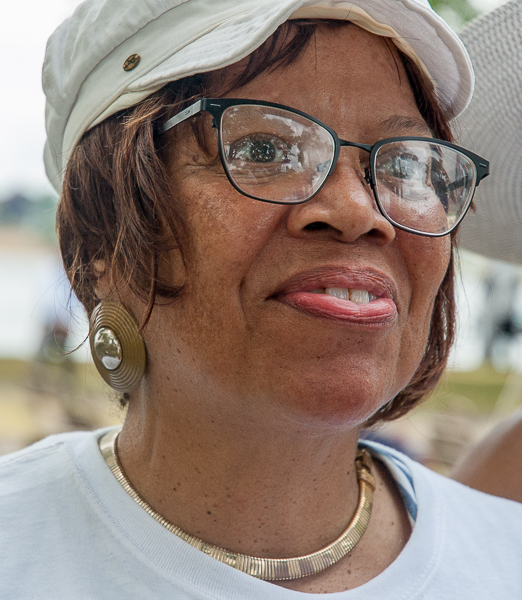
Doreen Wade is President of Salem United., Inc. She is a driving force of advocacy on behalf of Black citizens, including partnering with Senator Lovely and then-Representative Paul Tucker to establish Negro Election Day at the Salem Willows as a state holiday. Her vision has opened the celebration of Negro Election Day to everyone and thus helping to overcome prejudice and improve mutual understanding—embracing history to bend the moral arc. Negro Election Day is a master class in building an inclusive community.
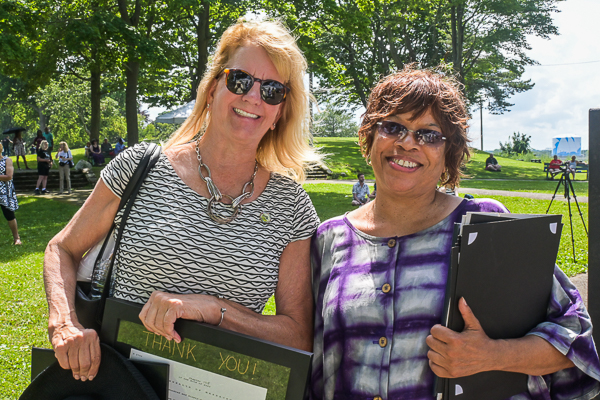
Janice Harper, PhD. showed how the dynamics of mobbing endanger any individual who asserts their rights and can exclude them from the community. Hostile environment harassment can result in a tenant being evicted or even force them to choose homelessness as a better option. Because of their poverty and high rents related to the housing crisis, tenants live in fear of eviction—homelessness can be a death sentence—and many tenants are afraid to assert their rights or seek a remedy.
Pamela Goodwin told about being vilified when she lived in Upton Public Housing, and when she could find no relief, she chose, as a grandmother of 71 years, to leave her home.
After years of being bullied, harassed, and mobbed, I chose to leave to save myself, spending nearly one year as a homeless person while living in a tent and my car. While homeless, I suffered through 4 housing denial hearings until finally, I found housing in a private section 8 subsidized facility in Greenfield.—Goodwin
Goodwin continues to advocate for her fellow tenants and is active in many local and state-wide movements including the Citizens' Housing and Planning Association (CHAPA). Goodwin is a key contributor to the work of the Stop Bullying Coalition and she is active in education about bullying. Goodwin served on the board of the Mass Union of Public Housing Tenants until she resigned over governance issues.
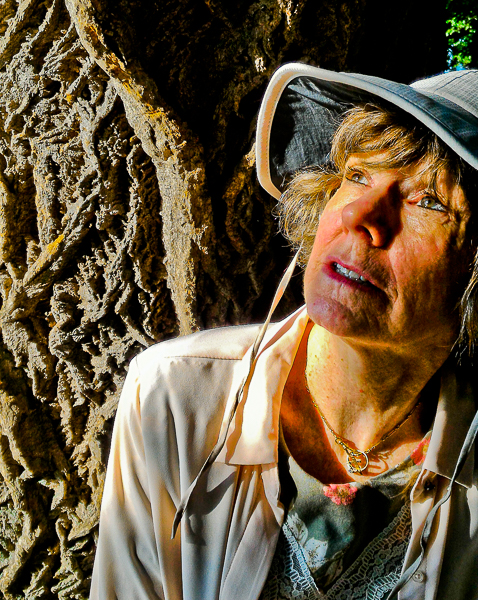
The hostile environment harassment that targeted Goodwin was likely triggered by her efforts to help her neighbors get their rights. She managed to get the common room made accessible and she sought election as a commissioner of the Upton Housing Authority. The housing leadership saw her as a threat and worked to disgrace and punish her.
Senator Lovely and Representative Kerans related their experience attending meetings of tenants where the dynamic resulting from hostile environment harassment was clear. They observed that hostile environment harassment is a serious problem leading to struggles between competing groups of tenants and tenants being evicted.
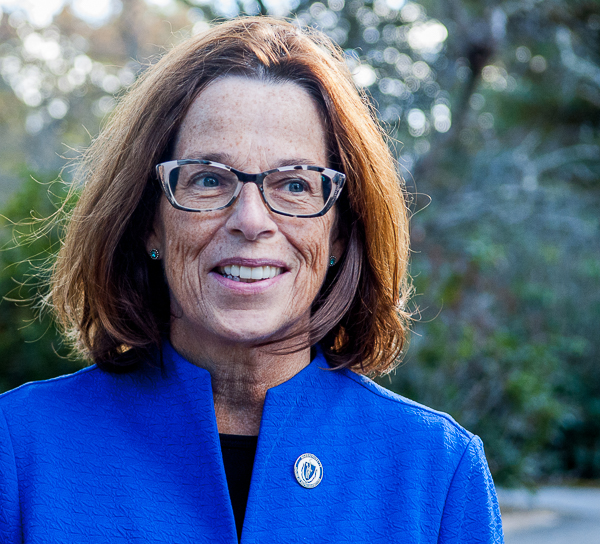
We reported on the impact of hostile environment harassment on “Margaret,” an elderly woman living with significant mobility challenges in “Erewhon” public housing. She received the reasonable accommodation of a reserved parking space to enable her personal aides and helpers to be with her, and for a wheelchair van to park to pick her up. However, in contradiction to the accommodation, the executive director of the Erewhon housing authority urged other tenants to freely use the designated space, leading to conflict between those tenants and Margaret. The other tenants started to complain about Margaret to management and the executive director blamed Margaret and sought to evict her.
Margaret’s complaint about the violation of her parking accommodation led to a hearing at a quasi-judicial agency. At that hearing, when the executive director of Erewhon housing labeled Margaret as a troublemaker of bad character, Margaret’s lawyer countered with a glowing portrayal of her.
Margaret was indeed lucky to have a sensitive attorney dedicated to a just outcome. The agency found that the housing authority acted against the law and ordered them to remedy the situation.
Although a housing provider should resolve conflict and assure the rights of all tenants, here the Erewhon executive director actually promoted competition for the parking space and then blamed Margaret for the resulting conflict.
In hostile environment harassment, the target is blamed as the perpetrator who is unsuited to live in the community. Mobbing (group aggression) is in effect the same as hostile environment harassment.
...housing for the elderly and disabled is a high-risk setting for mobbing behaviors, where interventions based on the bully paradigm fail to protect individuals who find themselves the target of group aggression. If anything, the target is likely to be called a bully by the very people who have engaged in bullying behavior, because bullies have been socially demonized as deserving of elimination, while the very label is a form of dehumanization. Accusing the target of always making complaints and being disliked by everyone can be used to portray the target of abuse as the abuser. —Janice Harper
Positive examples
We pointed out that some landlords hire and support qualified, competent, caring managers who are able to prevent bullying and hostile environment harassment and create a welcoming, peaceful community. The Chelsea Housing Authority is one example. “We’re here to help,” said Paul Nowicki, Director of Operations. Another example is Diane Drinan, the Executive Director in Trestle Way, a public housing development in Georgetown, where there has not been a problem with bullying for a decade. Drinan’s method is simple: she doesn’t tolerate false accusations, and when she hears of a problem, she intervenes. The other side of her personality and leadership is empathy.
Community norms can either promote a healthy, caring community or lead to a toxic community that is harmful. In public and subsidized housing for the elderly and disabled, failure to control bullying and mobbing (group bullying) creates a toxic community. Among the factors that may influence community norms and adherence to those norms are the goals and methods of several actors—norms of the local municipality, the landlord or local housing authority, the management and staff, and tenants, including tenants associations.
Emotional impact of hostile environment harassment
We talked about the severe emotional stress that hostile environment harassment causes for victims. Maureen Duffy and Len Sperry have written about the emotional toll of trauma caused by mobbing. Pending a legislative and policy resolution through H3868, it is urgent to provide immediate support for targets of hostile environment harassment. Would it be possible to establish an online forum or discussion group? How might we help with the needs of someone experiencing a level of stress that requires a professional level of support or treatment?
Urgent need for relief
Senator Lovely noted that all 200 legislators know about the problem of bullying and mobbing because their constituents reach out to them seeking relief. Representative Kerans asked if there might be records of complaints about mobbing among the calls coming to the Attorney General’s complaint line. Senator Lovely and Representative Kerans noted that while the legislature can create the law, they hope that the Attorney General might be able to endorse H3868 and to collaborate in improving it as needed.
Elizabeth Matos (AGO) said:
...this all sounds sadly familiar and terrible at the same time. I did tenant organizing as a legal services attorney in Attleboro for years. [I am ] happy to reconnect in the future about the pending legislation and how the Mass Civil Rights Act and other existing legal tools may already provide some remedies in these spaces.
Existing law has not solved the problem
We have found some examples of laws against bullying, mobbing, and hostile environment harassment. The Office of the Attorney General asserts that it is unlawful for a housing provider not to protect the rights of all tenants from harassment. MGL c.12 Section c. 12, §§ 11H-J authorizes either the attorney general or an aggrieved individual to bring a civil action to protect their rights; however, tenants in public or subsidized housing can not afford the legal costs. While certain courts might be more receptive to an appearance by a non-lawyer, the complex legal and administrative landscape would be difficult to navigate for anyone without appropriate legal training and practical experience.
The Massachusetts law on harassment, PartIII/TitleIV/Chapter258E, is not adequate to protect against all behaviors that can deprive targets of their peaceful enjoyment. 258e requires actual or threatened physical harm to the target or their property. Hostile environment harassment uses a variety of tactics that are not covered by this law.
Edith Stephenson, our colleague in Missouri, worked with her Representative, Ken Wilson to define “bullying” as abuse in Missouri's 'Elder Abuse Law' SB732. Edie continued to seek effective implementation.
The Fair Housing Law does provide protection from hostile environment harassment when the target is a member of a protected class. The Massachusetts Civil Rights Act—M. G. L c. 151B, § 4(6)—is similar to the Federal Fair Housing Law and has an extended list of protected classes. The Massachusetts Commission Against Discrimination (MCAD) handles complaints under this act as well as some complaints under the Federal law.
The bill proposed by Representative Kerans and Senator Lovely, H3868, is modeled on the carefully drafted Fair Housing Law rule on hostile environment harassment. H3868 provides protection for all tenants without limitation to members of a protected class.
H3868 would be a landmark in state protection of the rights of tenants. Representative Kerans suggested that the Commonwealth has a history of being first, and creating the office of the tenant advocate in the Office of the Attorney General would be another proud first.
Lisa Sears said that she appreciated our presentation and would take the issue back to her team for consideration. We are grateful to have been heard by Lisa Sears and the other members of the attorney general’s team. The meeting demonstrated how citizen advocates, elected legislators, and state officials can work together to improve mutual understanding and collaborate in solving problems.
"With the consistent support from Jerry Halberstadt and the Stop Bullying Coalition, we continue to push for a public housing tenant advocate in the Attorney General's Office who can address issues of bullying and mobbing in public housing. Thank you to the AGO representatives who listened intently to this initiative. And thank you to the tenants who bravely shared their personal experiences of bullying and discrimination. Every tenant deserves the quiet enjoyment and safety in their homes." —Joan B. Lovely Assistant Majority Leader State Senator, 2nd Essex District
Resources
FR–5248–F–02 Quid Pro Quo and Hostile Environment Harassment and Liability for Discriminatory Housing Practices Under the Fair Housing Act, Final Rule published in the Federal Register on September 14, 2016, CFR Citation: 24 CFR 100, p. 63075
Janice Harper, PhD., Bullying and Mobbing in Group Settings
Duffy, Maureen and Len Sperry, Mobbing: Causes, Consequences, and Solutions, (New York: Oxford University Press, 2012).
Office of the Attorney General Advisory: The failure of management and the landlord to assure peaceful enjoyment for all tenants is unlawful, according to the Attorney General of the Commonwealth of Massachusetts. Office of the Attorney General Advisory: All Tenants Have a Right to Be Free from Harassment and Intimidation, April 11, 2018.
Jerry Halberstadt and Marvin So, Statewide Survey on Bullying of Tenants in Public and Subsidized Multifamily Housing: Report of the Committee for Research on Conditions and Prevalence of the Commission on Bullying.
“Hostile environment harassment” [is] unwelcome conduct creating a situation that makes it difficult or impossible for victims to have the peaceful enjoyment of their residency. Hostile environment harassment exists when a person was subjected to unwelcome spoken, written or physical conduct and the conduct was sufficiently severe or pervasive as to interfere with or deprive the victim of their right to use and enjoy the housing. ... Hostile environment harassment shall include, but not be limited to, bullying or mobbing. ---Bill H3868
The Policy & Government Affairs Division works with staff across the office to develop a policy agenda aimed at ensuring that everyone in Massachusetts has access to equal treatment under the law, a healthy environment, affordable health care, a transparent and open government, safe neighborhoods, and is protected from abusive practices in the marketplace.
The mission of the Stop Bullying Coalition includes advocacy, research, and education to empower tenants of public and subsidized housing for the elderly and disabled.
In 2015, Senator Lovely sponsored a bill to create the Commission on Bullying. The Stop Bullying Coalition worked to advance that bill with two prominent tenants' rights groups, the Mass Union of Public Housing Tenants and the Mass Alliance of HUD Tenants; the Independent Living Center of the North Shore and Cape Ann, the Resident Advisory Board of the BHA, and numerous elderly and disabled tenants. We enjoyed support from the Citizens' Housing and Planning Association (CHAPA) and managers of housing programs. Together, we advocated and testified before the Joint Committee on Housing, and our bill to create the first Commission on Bullying in the nation was passed—Commission to Study Ways to Prevent Bullying of Tenants in Public and Subsidized Multi-Family Housing, pursuant to Chapter 2 of the Resolves of 2016. Governor Baker appointed Jerry Halberstadt to represent the Stop Bullying Coalition as a commissioner on the commission from 2016-2017.
“Margaret” and “Erewhon” are pseudonyms used to protect her identity. This article includes references and details that supplement our discussions in the November 20th meeting.
